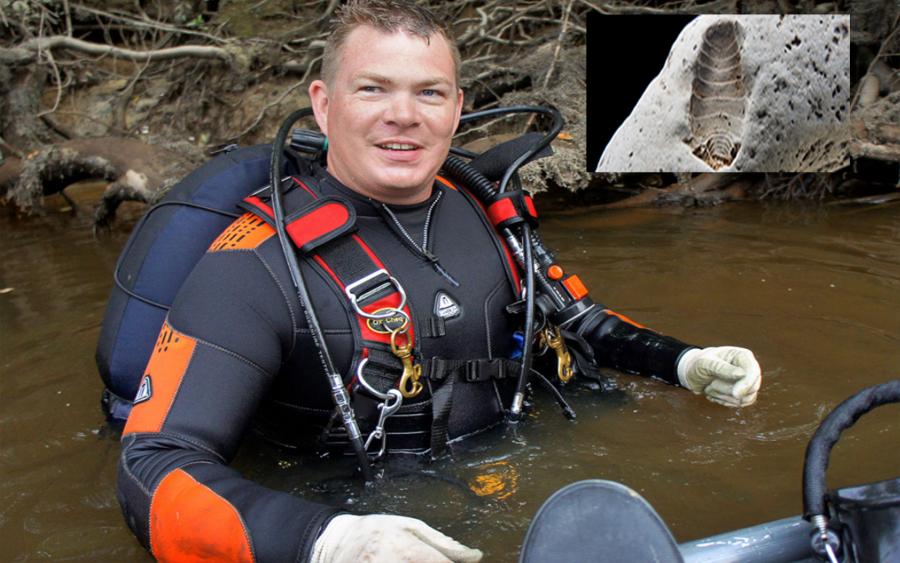RICHMOND, VA – A groundbreaking fossil discovery by Jason Osborne, an Odessa scuba diver, has revealed a new genus and species of parasitic marine isopod dating back 18 million years.
Named "Calverteca osbornei" in honor of Osborne, the discovery has provided scientists with insights into ancient marine ecosystems.

Jason Osborne, 53, has been credited with finding Calverteca osbornei, a parasitic crustacean fossil named in his honor.
The fossil, a three-inch-long coprolite—or fossilized feces—contained the impression of the isopod’s body. This marks the first recorded instance of a coprolite preserving an undigested arthropod, showcasing extraordinary preservation quality. Researchers at the Calvert Marine Museum and Kent State University confirmed the find, which was published in Palaeontologia Electronica on October 25, 2024.
"This discovery is extraordinary not only for its rarity but also for what it reveals about ancient marine ecosystems," said Dr. Stephen J. Godfrey of the Calvert Marine Museum. "Impressions of ingested animals in coprolites are exceedingly rare, making this find a significant contribution to the fossil record."
The isopod, belonging to the Cymothoidae family, was likely a parasite that attached itself to fish tongues.
The discovery traces the isopod’s journey—ingested by a fish, passed through its digestive system, and ultimately fossilized in sediments from the prehistoric Atlantic Ocean floor. The find also highlights how isopod exoskeletons can survive the digestive processes of hosts, adding to knowledge of marine life during the Miocene epoch.
Osborne, who has a history of significant fossil discoveries, including two seal species and a whale genus, found the specimen while diving in Virginia’s Pamunkey River.
The published research is accessible through the journal Palaeontologia Electronica.
Subscribe to the LIVE! Daily
Required






Post a comment to this article here: